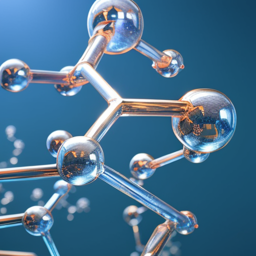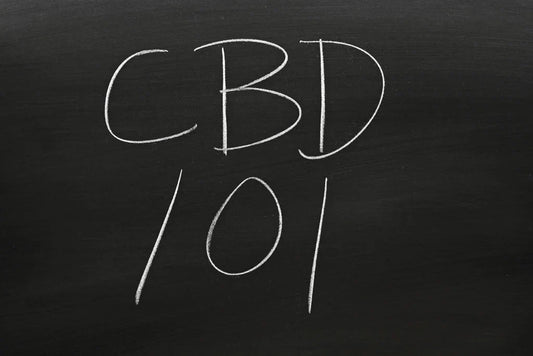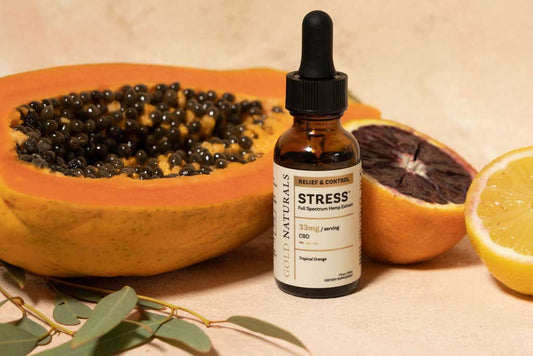How CBD Works

You’ve heard that CBD works wonders to support wellbeing, but how exactly does CBD work?
CBD and other cannabinoids interact with the body and brain through what is known as the endocannabinoid system (ECS). It’s been referred to as one of the most important physiological systems that exists, simply for the fact that its entire purpose is to help the body stay balanced and in good overall health.
The ECS is known to be responsible for several physiological functions including mood, memory, immune function, digestive function, hunger, pain, stress and more.
How CBD Works: A Brief Introduction To The Endocannabinoid System
The ECS is a complex system comprised of a vast number of receptors found throughout the body and brain.
At the most basic level the ECS consists of the following:
- Endogenous Cannabinoids: Commonly referred to as endocannabinoids, these are cannabinoids similar in structure to cannabinoids found in cannabis that are naturally produced by the body. There are two naturally occurring endocannabinoids produced in the body: anandamide (AEA) and 2-arachidonoylglycerol (2-AG).
- Cannabinoid Receptors: Cannabinoid receptors, simply referred to as CB1 and CB2 receptors, are found throughout the entire body. The largest concentrations are found in the central and peripheral nervous systems and immune system. CB1 and CB2 receptors serve two major functions. They regulate the effects of the body’s endocannabinoids and govern the effects of CBD and other cannabinoids.
- Enzymes: Enzymes in the ECS are responsible for the synthetization and degradation of endocannabinoids AEA and 2-AG. These enzymes include fatty acid amide hydrolase (FAAH) and monoacylglycerol lipase (MGL or MAGL).
Every person is born with their ECS in prime condition. When the ECS is functioning as it should, we experience balanced health in both body and mind. When we experience health conditions associated with any of the physiological functions regulated by the ECS, the body releases its own endocannabinoids to bring the body back to a balanced state.
As we age, we produce fewer and fewer endocannabinoids. Eventually, the body simply doesn’t function as optimally as it did when it was younger. Ultimately, this causes imbalance in the ECS. When the ECS isn’t functioning properly, we may experience a range of various physical and mental health issues.
While the ECS works hard to keep the body in a balanced state of homeostasis, without proper endocannabinoid production an endocannabinoid deficiency can develop.
Common signs of endocannabinoid deficiency might include:
- Difficulty sleeping
- Stress and mood imbalance
- Digestive issues
- Increased inflammation
- Chronic muscle and joint discomfort
If the body cannot produce enough of its own endocannabinoids, research suggests that “modulating ECS activity holds therapeutic promise for a broad range of diseases.”
Here’s where cannabinoids come in! One way to modulate ECS function is with CBD and other cannabinoids.
How Cannabinoids Work With The ECS
Cannabinoids found in cannabis are very similar to endocannabinoids found throughout the body and brain.
How exactly do cannabinoids influence the ECS, though?
CBD and other cannabinoids either directly or indirectly affect CB1 and CB2 receptors, helping the body in its efforts to keep us in good health and maintain homeostasis by supporting many of the body’s physiological processes.
THC and many other cannabinoids show to influence ECS function by binding directly to CB1 and CB2 receptors. For example, CB1 is the receptor that mediates the intoxicating effects of cannabis. THC binds directly to CB1 receptors, causing the psychoactive effects the molecule is known for. CBD, however, works a bit differently.
CBD doesn’t bind to either the CB1 or CB2 receptors. Instead, it affects the ECS indirectly by influencing various molecular pathways throughout the body and brain. These include serotonin receptors, vanilloid receptors, the immune system and more. CBD has also shown to naturally slow the breakdown of AEA levels by inhibiting FAAH.
While researchers have just scratched the surface on the ECS and its function, CBD is suggested to work the way it does because of its influence on the ECS.
One way to overcome ECS deficiency is through the introduction of CBD and other cannabinoids. While they can certainly help, these cannabis compounds shouldn’t be seen as a “cure-all.” Remember, CBD products aren’t intended to treat or cure any underlying illnesses.
That being said, CBD and other cannabinoid products are an excellent addition to a healthy lifestyle. Combining CBD and other cannabinoid products with regular exercise and a healthy diet can naturally help maintain ideal ECS function.




